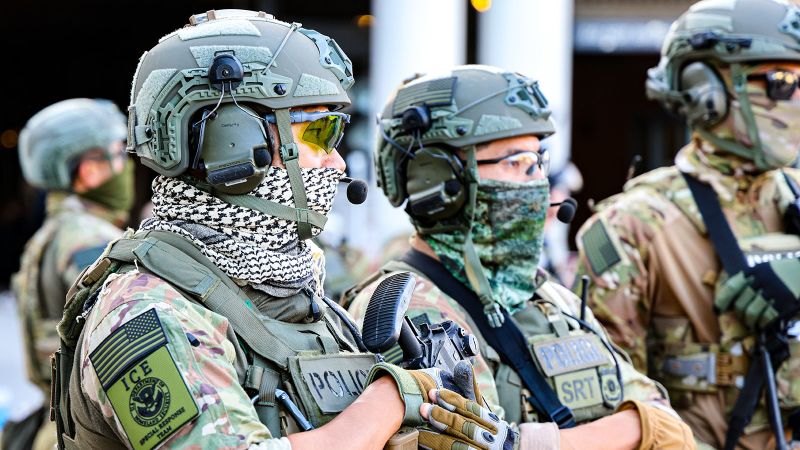The Trump administration has requested a federal appeals court to suspend a recent ruling that mandates officials to cease immigration arrests without probable cause in Southern California. This appeal was filed on Monday, following a decision from US District Judge Maame Ewusi-Mensah Frimpong, which was issued on October 20, 2023.
Judge Frimpong’s ruling requires the Department of Homeland Security (DHS) to create guidance for officers on establishing “reasonable suspicion” for arrests. The order specifically states that this determination cannot rely on factors such as race, ethnicity, language, accent, or the mere presence of an individual at specific locations, like bus stops or workplaces. The ruling applies to the seven counties within the US Central District of California, which includes Los Angeles and its neighboring areas.
In its emergency appeal to the 9th US Circuit Court of Appeals, the administration argued that Judge Frimpong overstepped her authority. The Justice Department’s attorneys characterized the ruling as a form of “judicial takeover” of immigration enforcement policy. They contended that it is inappropriate for a district judge to independently alter the operations of federal immigration enforcement, which they assert is traditionally overseen by the executive branch.
The administration is also seeking an “administrative stay” from the appeals court. This would temporarily halt Frimpong’s order while the court evaluates whether to maintain this pause for an extended period.
Legal representatives from the American Civil Liberties Union (ACLU) of Southern California, who were instrumental in filing the case, are urging the appeals court to deny the request for a temporary suspension. The ACLU’s legal challenge asserts that the DHS has conducted unconstitutional arrests and has obstructed detainees’ access to legal representation.
As the legal battle unfolds, the implications of this case could significantly affect immigration enforcement practices within the affected jurisdictions. The outcome not only impacts the operations of ICE but also raises broader questions about civil liberties and the balance of power between the judicial and executive branches of government.
The 9th US Circuit Court of Appeals now faces the task of determining the future of this contentious ruling, which has already ignited discussions surrounding immigration policy and enforcement standards in the United States.
